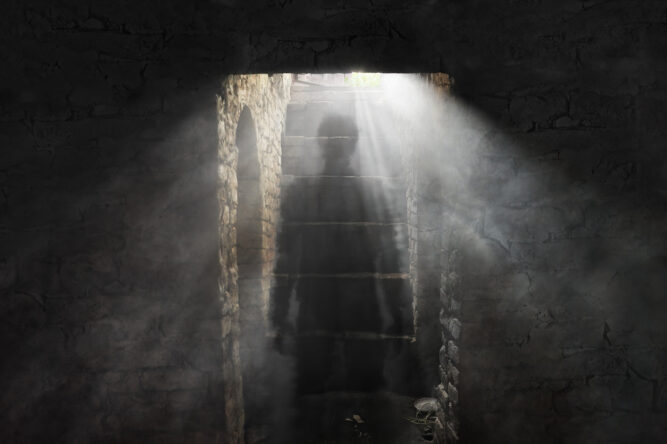True crime might seem like a strange obsession to some, but if you’re hooked, you know it’s way more than just entertainment.

Whether you’re deep into documentaries, podcasts, or endless Reddit rabbit holes, your fascination actually says a lot about your personality—and no, it doesn’t mean you’re weird. It usually points to some seriously sharp traits that are just under the surface. Here’s a closer look at what your true crime obsession might reveal about you, in ways that are way more interesting than people realise.
1. You have a deep need to understand what drives people.

If you’re the type who can’t turn off a documentary until you’ve got to the “why,” it’s because you’re wired to want full understanding. You’re not satisfied with surface-level answers; you want the whole messy, complicated truth about human behaviour, even when it doesn’t make logical sense.
True crime gives you a window into minds and decisions most people would rather pretend don’t exist. It’s not about loving the darkness; it’s about refusing to look away from it. You believe that understanding what makes people tick, even at their worst, makes you wiser, not colder.
2. You’re someone who believes knowledge equals safety.

For you, watching true crime isn’t just about curiosity, it’s about preparation. Somewhere deep down, you feel that by learning what went wrong in other situations, you’re building a mental guidebook for yourself.
It’s not fear-based, either. It’s more like a quiet sense that knowing risks, recognising danger signs, and spotting patterns helps you move through the world a little smarter. It’s the difference between feeling helpless and feeling like you have a fighting chance.
3. You’re fascinated by complexity, not just “good vs. evil.”

One thing you probably notice when you really get into true crime is how little of it is black and white. Cases rarely have clear heroes and villains; there’s often trauma, poor choices, and layers of pain that muddy the waters.
You’re drawn to those nuances. You can sit with uncomfortable truths—the idea that good people sometimes do terrible things, and that bad outcomes aren’t always the result of pure evil. That ability to handle grey areas says a lot about your emotional depth.
4. You feel a deep pull toward justice and fairness.

So many true crime fans aren’t obsessed with the crime itself. Often, they’re obsessed with the aftermath. The trials. The investigations. The victories when justice is finally served, or the heartbreak when it’s not.
Your true crime habit reflects how fiercely you care about fairness. You want wrongs to be made right, not just for punishment’s sake, but to honour the victims, fix the mistakes, and remind the world that truth still matters.
5. You’re surprisingly resilient emotionally.

It’s not easy to stare down stories about violence, betrayal, and tragedy and keep going. The fact that you can engage with heavy topics without shutting down shows you have a lot of emotional strength, more than you might realise.
Facing dark realities instead of denying them takes courage. It means you’re not afraid to feel sadness, anger, or fear because you know those emotions are part of being human, not something to run from.
6. You have a curiosity that refuses to stay surface-level.

You’re not someone who’s satisfied with the obvious or the easy answer. You want to pull back the layers, dig deeper, and understand the parts of life that most people gloss over. True crime draws you in because it offers a rare chance to go beyond the polished version of life most people present. You know there’s always more under the surface, and you’re not afraid to explore it, even when it’s messy or uncomfortable.
7. You’re someone who likes solving puzzles (even if there’s no neat ending).

Listening to an unsolved case or working through evidence in a docuseries taps into the part of your brain that loves challenges. You don’t just passively consume stories; you actively analyse them, trying to piece together the missing parts.
Even when the story doesn’t have a satisfying ending, you stay engaged. That patience and willingness to keep thinking, even without a guaranteed reward, shows a rare kind of mental endurance and curiosity that a lot of people never really develop.
8. You deeply respect survival stories.

One thing true crime shows you over and over again is that people are capable of incredible resilience. Whether it’s survivors of violent attacks, family members seeking justice, or investigators who refuse to give up, you notice and respect that toughness.
It’s not the tragedy that inspires you; it’s the fact that even in the worst moments, people find ways to survive, heal, and fight back. That quiet admiration for human strength says a lot about your own inner drive, too.
9. You see value in being aware, not naive.

Some people think ignoring danger makes them feel safer, but you know better. Watching true crime isn’t about being paranoid; it’s about staying awake to how the world really works, both the good and the bad. You’re someone who believes being aware makes you stronger. You’d rather face hard truths than live in blissful ignorance, because you know that awareness, even when it’s painful, is a powerful tool for navigating life.
10. You understand that human nature is endlessly complicated

At the end of the day, your true crime obsession reflects a belief that people are messy, unpredictable, and sometimes shockingly resilient. You’re not looking for easy villains or perfect victims. You’re looking to understand humanity in all its complicated, beautiful, and sometimes heartbreaking forms.
True crime reminds you that nobody is one thing, and that every life, even in the most tragic circumstances, has layers worth understanding. It’s that hunger for realness that makes you more thoughtful, more empathetic, and much more grounded than people who think true crime is just a morbid hobby.




